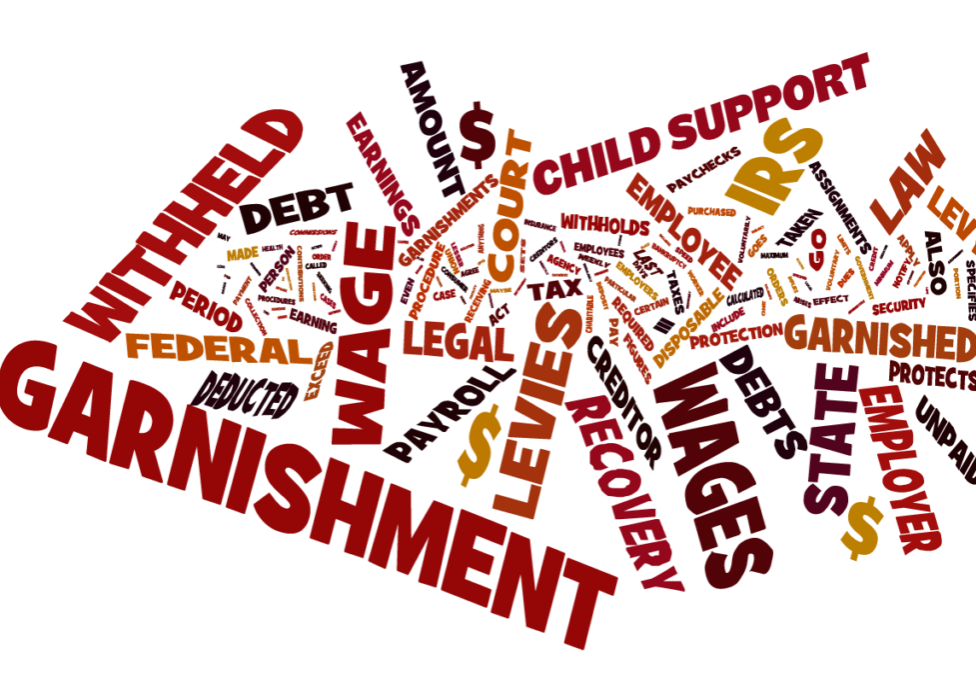- ☎ 831-224-3199
- [email protected]
- 📍 110 Webster St. Monterey, CA 93940
- Privacy Policy
Perhaps it's been several months since you've made a payment on a credit card or other bank loan. After trying to collect, a creditor may sue you and if you don't "defend" the suit, the creditor may obtain a judgment against you. Once a judgement has been issued, the creditor will likley seek court permission to garnish your wages. In other words, they will ask your employer to send them a portion of your regular pay check. They will continue to garnish your pay check until the debt is paid in full. In addition to banks and credit card companies, the IRS and Frachise Tax Board can garnish your wages (without a court order) for unpaid back taxes. Bankruptcy can also stop wage garnishments by the IRS and Franchise Tax Board. A Chapter 13 reorganization can be a cost-effective way to pay down back taxes or, in some cases, eliminate back taxes.
Without your complete paycheck, you might struggle to provide financially for yourself and your family on a daily basis.
Bankruptcy can stop wage garnishments and allow you to keep your money that is necessary to pay your rent or mortgage and other necessities. Bankruptcy can give you a fresh start by eliminating the debt entirely, or provide an affordable re-structuring of your debt.
Call us today for a free consultation at (831) 224-3199.
